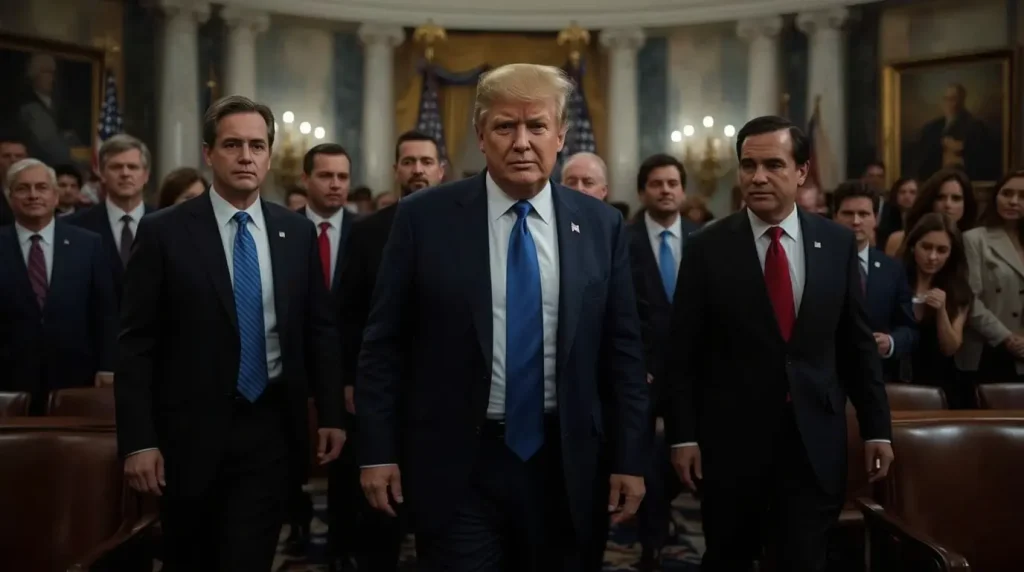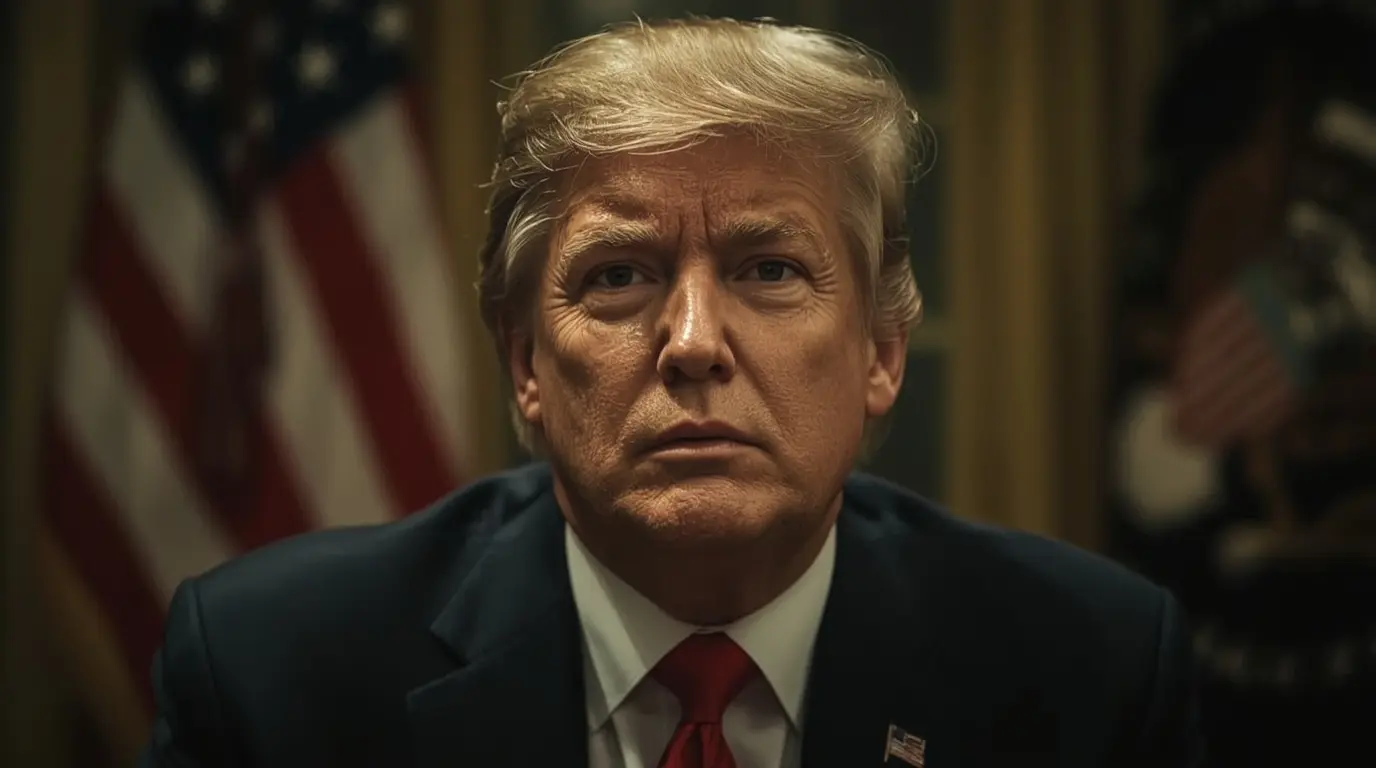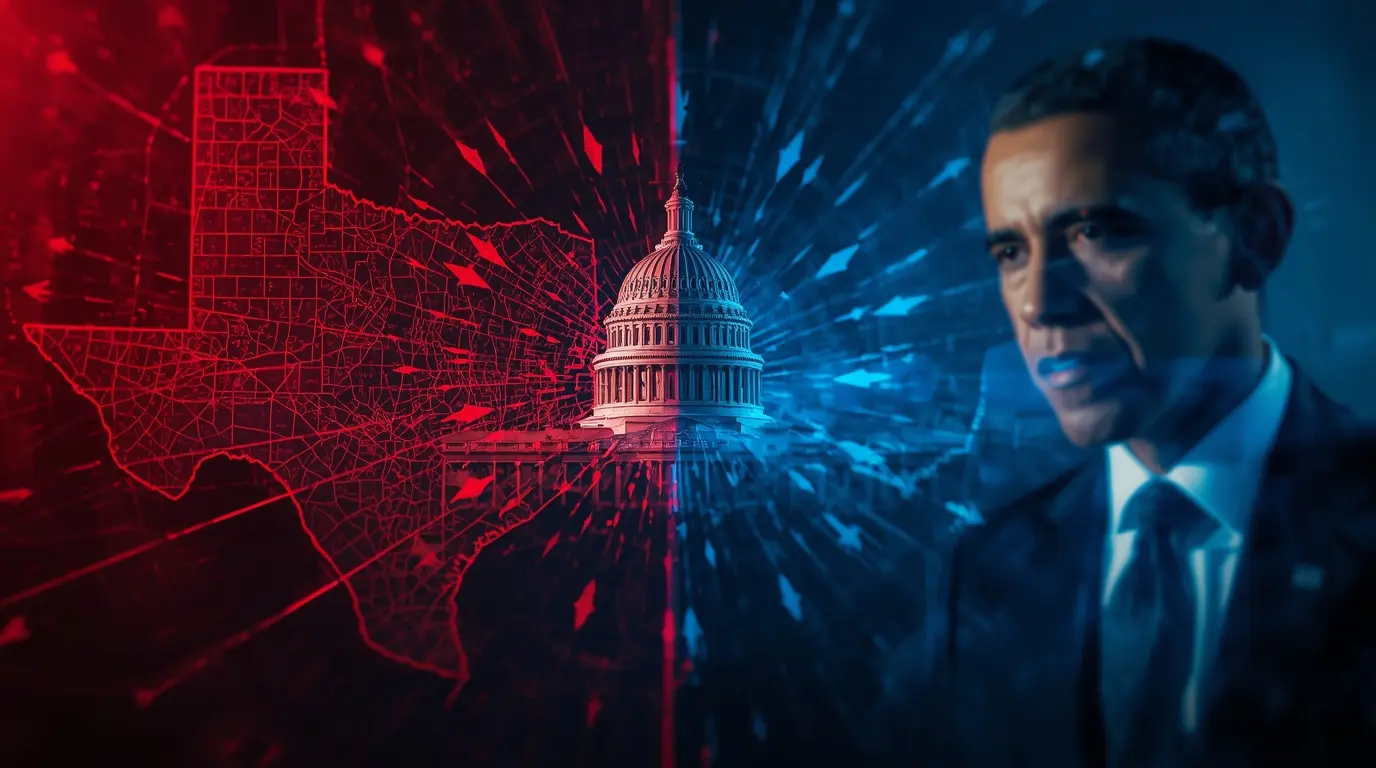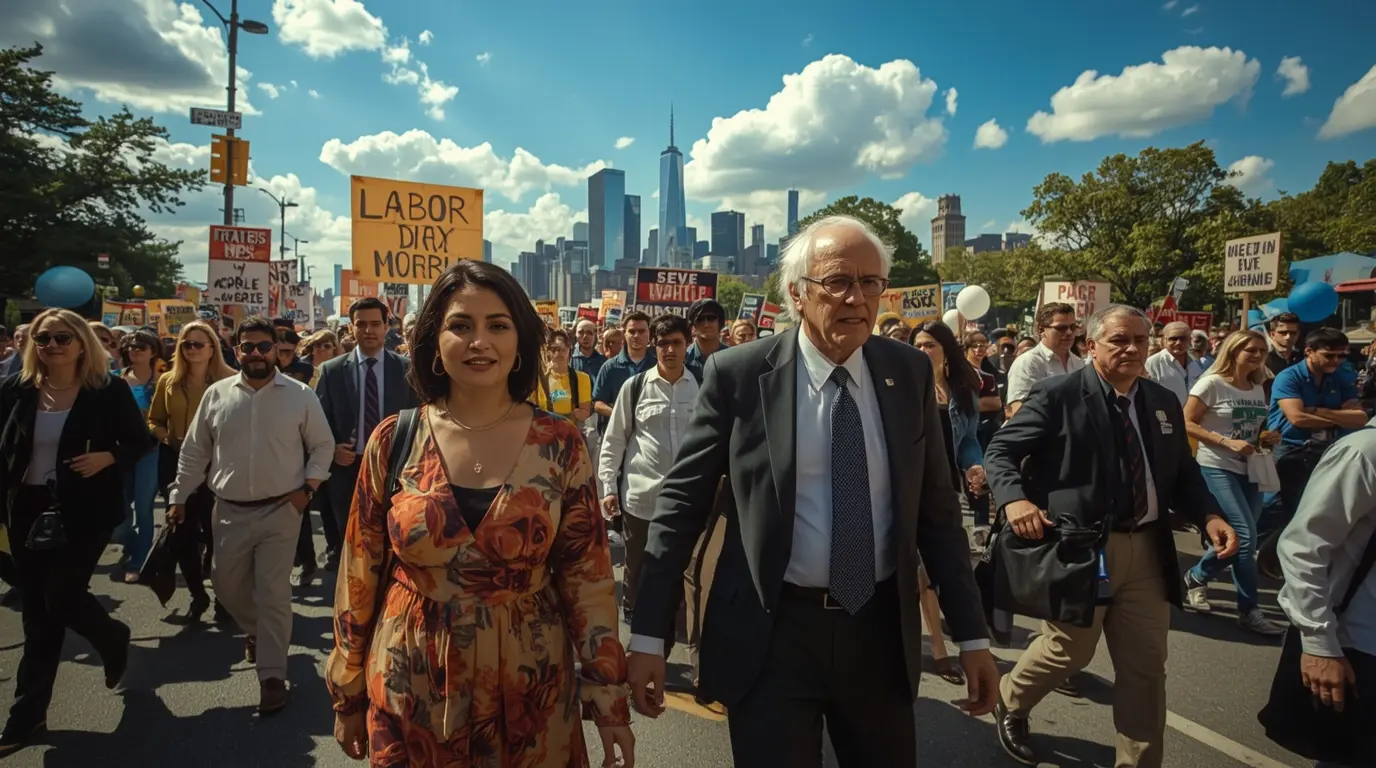In a shocking escalation of his clash with Congress, President Donald Trump has decided to cancel almost $5 billion in foreign aid all by himself, using a technique that lawmakers from both parties argue is flat-out illegal. The tactic is called a “pocket rescission” and, in their eyes, this is the boldest strike yet in a longer running battle to pull money-making powers away from Congress and hand them straight to the Oval Office. By taking this move, the White House is clearly preparing the ground for a showdown that could lead to a government shutdown and a big-time constitutional fight that might shape the separation of powers for many years to come.
The pocket rescission is Trump’s latest bargaining chip in budget skirmishes with Capitol Hill. The Trump team is now calling a package that seeks to gut $4.9 billion in foreign aid a “historic rescission” package. The phrase itself makes the request sound almost studious, but the underlying mechanics are anything but. The proposal uses a rare and mostly forgotten tactic that lets the president suggest cutting budget money days before the end of the fiscal year, in this case September 30, which gives Congress little to no room to fight back and, from the White House’s perspective, makes the disguise of legality almost easy.
White House Budget Director Russ Vought, who helped push President Trump’s plans to freeze and reallocate federal money, insists the move is strictly legal and aimed at chopping what officials label “woke, weaponized, and wasteful spending.” These FY-2020 rescissions target:
- $3.2 billion from USAID’s Development Assistance.
- $322 million from democracy-promotion grants.
- $521 million from dues to international groups.
- $393 million for peacekeeping missions.
The White House now describes each of those programs as “radical, leftist priorities” because their target spending plans support programs like climate resiliency, LGBTQ dignity, and humanitarian aid that officials rarely see as effective.
Constitutional Crisis: The Battle Over the Power of the Purse
In plain language, the Founders glued the money clause into Article I, Paragraph 9, to say that “No Money shall be drawn from the Treasury, but in Consequence of Appropriations made by Law.” Yet every President since Franklin Roosevelt has in the background disputed how the modern appropriation process should be monitored.
Often Trump pushed spending to swim downstream, keep the minutiae of difference—which could log the programs at his “legacy” Executive list—, and hold the overall equivalent. The Congress Task Force tracks, which is headed by Democratic Senators and Congress State, counts the unpaid and proudly backward-made money as “slaved” and trumped whole: $425 billion for research from federal scientists, local police video support, and state grants to replace the Trojan horseed and attacked “irrelevant” energy programs.
Congressional leaders from both the GOP and Dems are furious over what they allege is an illegal overreach of power. Senator Susan Collins (R-Maine)—who heads the Senate Appropriations Committee—called the recent pocket rescission “a plain breach of the law,” adding that “only Congress can lawfully determine how money is spent in the federal budget.”
Even Representative Thomas Massie (R-Kentucky)—a fierce advocate for slashing the budget—questioned what he termed the Administration’s “sneaky” maneuver. “It seems intentional, and the timing is deliberate,” Massie said. “By waiting until the closing period, they’re betting the chips. It’s brittle legislation.”
Judicial Standoff: The Slow March to the High Court
The courts are now the main site for the spending clash between the Executive and the Legislature, but a final answer may be drawn-out. Multiple lawsuits about appropriation issues are already in the pipeline. Analysts warn that the Supreme Court is unlikely to answer the pivotal constitutional issues until late next year, and even that isn’t guaranteed.

So far, federal courts have offered a patchy record on Trump’s push to freeze spending:
The Supreme Court let his team freeze almost $800 million meant for NIH research awards.
The D.C. Circuit Court of Appeals declared that only the GMotGAO may sue to enforce the spending law, blocking nonprofits from filing most of the cases.
In contrast, five federal district courts have quickly pressed pause on the administration’s cuts, halting the money freeze across a handful of agency programs.
In almost every filing, the administration has revived Trump’s familiar claim that the original Impoundment Control Act of 1974, which limits the executive branch’s ability to defy a specific line in an appropriation bill, breaches his own constitutional authority.
Major Legal Challenges to Trump’s Spending Actions
| Case | Funding Affected | Current Status | Potential Impact |
|---|---|---|---|
| USAID Funding Cut | $2 billion in foreign aid | Administration dropped SCOTUS request | Could set precedent on foreign aid impoundment |
| NIH Research Grants | $800 million in health research | SCOTUS allowed cuts to proceed | Affects executive authority over grant funding |
| CFPB Budget Cuts | Agency operating funds | Appeals court allowed cuts to resume | Impacts independence of federal agencies |
Congressional Response: Limited Pushback From Trump’s Own Party
Even with strong, bipartisan criticism of Wharton’s budget cuts, GOP lawmakers in Congress have largely stayed quiet about a president from their own party. Senior Republicans, while unsettled by the president’s tactics, have stayed on the sidelines, sensing his grip over the party makes any serious challenge unattractive.
Because of this inaction, Democrats have stepped in to fill the void. House Minority Leader Hakeem Jeffries condemned the pocket rescission as a “brazenly unlawful scam,” labeling the president a “wannabe King,” while Senator Patty Murray, of Washington, insisted Congress must defeat the “ridiculous, illegal maneuver.”
Some analysts say Congress still has the tools to push back if lawmakers decide to act. They could deny money for essential White House programs or freeze the confirmation process for administration nominees until the Executive Branch shows it will obey budget law. But the House majority seems to want the federal court system to step in, rather than challenging Trump face to face.
Philip Wallach, a scholar at the American Enterprise Institute, summarized the mindset: “Congress has a standing habit of waiting for the courts to step in, the judges to give the interpretive ruling, so it doesn’t have to take a hard vote itself.”
Historical Context: Trump’s Second-Term Aggression
The White House’s drive to step around Congress and curtail domestic spending has given the second term a sharper edge than the first. The intensity and tactics of the ongoing operations mark a visible broadening of the long-running struggle over who controls the purse.
Last term, the President’s attempt to hold back military assistance to Ukraine ended in an impeachment vote and a drawn-out trial. This term, Neomi Vought at the Office of Management and Budget is stretching the limits further: she redirects congressionally allocated funds, sidesteps transparency questions, and sidesteps even departmental processes by requiring OMB blanket sign-off every discretionary decision.
Bobby Kogan, who used to work for the Biden budget office, believes that the OMB, under Acting Director Russell Vought, has effectively forced federal agencies to obey the administration’s orders, with agencies knowing that their budgets hang in the balance.
The Shutdown Showdown: September Deadline Looms
The OMB’s “pocket rescission” plan has come to the forefront as lawmakers prepare for the September 30 deadline to fund the federal government—now only 14 workdays away. The dispute raises the odds of a federal shutdown, especially with Democrats saying they might vote against any spending bill that doesn’t prevent Trump from disregarding spending limits set by Congress.
Senator Chris Coons (D-Del.) stated bluntly, “If they keep pursuing this, I will not vote to keep the government running after September 30. They’re already shutting it down in ways that are both illegal and inappropriate.”
The situation grows more complicated because of deep divisions within the House Republican majority and Trump’s demand that lawmakers use the appropriations process to advance his America First priorities. That mix makes a lapse in federal funding all but certain and raises the risk that a shutdown—if it happens—will continue long after the September date.
Global Implications: Beyond Domestic Politics
Cutting assistances at this scale reaches places outside Washington. Trump’s budget clash deals international aid heavy blows, slashing cash meant for programs the U.S. helped build. The cuts stretch from AIDS relief to peacekeepers, leaving open roles big enough for rival powers to stroll into.

The pocket rescission zeroes in on agencies the White House views as hostile to American goals. The rescinded sums include:
- $75 million to UNESCO, for the administration the body’s view of historical issues leans toward “antisemitism and anti-Israel sentiment.”
- $107 million for the International Labor Organization, which the White House charges promotes unions that threaten U.S. companies abroad.
- $45 million to the Pan American Health Organization, accused of allowing Cuban hospitals to invest profits into freedom-suppressing practices through health brigades.
While the cuts echo “America First” slogans, the timing bites. U.S. soft power wears thin just as Chinese and Russian arms, cash, and vaccine programs flood broken governments.
Looking Ahead: A Lasting Transformation of Executive Power
Whatever next Congress writes into a budget, the signal is clear: the White House thinks it can spend it a different way. Politically-savvy versions of the strategy can outlive next year’s debates, and courts typically slow past presidents down rather than finish planned cuts. A future named Biden, Trump, or.club leader abroad could keep the same manuscript.
Senator Rand Paul (R-Ky.) warned: “History will remember this administration as the one that generated more Supreme Court rulings on the separation of powers than any other during the last 250 years.”
The final answer to these disputes will influence how the U.S. government works for years, deciding if Congress can protect its constitutional control over federal money or if future presidents will keep wielding the expanded, one-sided spending powers Trump claimed.
Conclusion: Democracy’s Checkbook on the Line
The heated clash between Trump and Congress over who controls the federal budget is much more than a routine disagreement on spending. It goes to the core of our system of checks and balances. The framers of the Constitution gave Congress, not the executive, the power to appropriate money as a bulwark against presidential overreach. Trump’s ongoing attempt to weaken that power threatens a bedrock principle of American democracy.
With the September 30 funding deadline looming and court cases still winding their way through the system, the country is staring down not just the threat of a government shutdown but a test of the balance of powers. The resolution of this crisis will shape whether the sweeping vision of strengthened executive powers championed by the former president becomes a normal part of our system, or whether the legislature is able to reclaim its constitutionally assigned duty to control federal spending.

The clash over the $4.9 billion in foreign aid that Trump tried to cancel through a so–called pocket rescission is therefore about far more than a single funding figure; it is a referendum on the ability of the Constitution as designed by the Framers to endure the strains of today’s hyper–partisan politics and an ever more assertive White House.
Source: https://edition.cnn.com/2025/09/03/politics/trump-congress-spending-shutdown-recissions
For more incredible stories of everyday news, return to our homepage.




